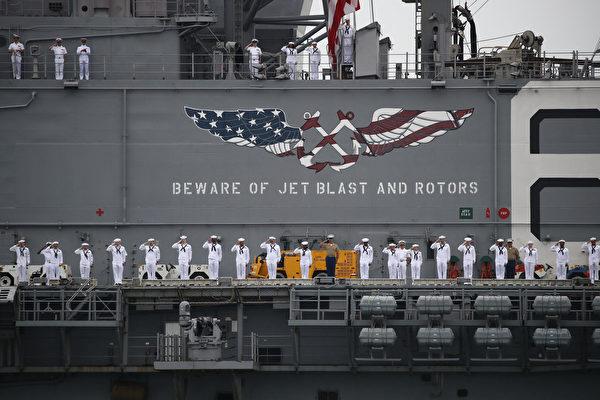On Sept. 14, South Korea, the United States, and Canada held a joint military exercise to commemorate the 73rd anniversary of the Incheon Landing in the Korean War. South Korean President Yoon Suk Yeol was the first sitting president to host the event.
“The Incheon Landing Operation is part of the proud history of liberal democracy repelling totalitarian communism and is a valuable asset that the free world should cherish,” Mr. Yoon said.
“This year’s series of celebrations commemorating the Incheon landing has served as a deterrent to North Korea and China. Unlike his predecessor, President Yoon Suk Yeol was not afraid to hold large-scale commemorative events in the face of North Korea and China. His approach is clear: peace through strength, not appeasement.” Kim Tae-woo, former director of the Korea Institute for National Unification and a professor at Konyang University, told The Epoch Times on Oct. 5. He emphasized that Mr. Yoon’s key security policy is strengthening the alliance between the United States, Japan, and South Korea.
Mr. Yoon also said that anti-state forces, communists, and their sympathizers are threatening democracy with fabrication and manipulation. His comments were referring to the propaganda and infiltration campaigns by the North Korean regime.
On Sept. 28, a spokesman for China’s Ministry of National Defense responded to a question from a reporter at a regular press conference by saying that China would not stand idly by while the United States gathered its allies to carry out “provocative military activities” at China’s doorsteps.
In response, Park Minsik, Ministry of Patriots and Veterans Affairs, wrote on Sept. 30 that the Incheon Landing was a historic victory, defeating the invading communist North Korean forces and protecting the lives of countless Koreans.
Mr. Park also said that the Chinese regime has crossed the line of basic respect for another country. While South Korea commemorated this great victory, the Chinese defense ministry called it a “provocative military action on its doorsteps.”
Independent contributor Zhuge Mingyang believes that in the face of North Korea’s nuclear threat, Mr. Yoon’s policy of strengthening the U.S.-Japan-South Korea alliance has been very effective. Mr. Yoon repeated condemnations of communist forces, which many believe to include both the North Korean regime and the Chinese Communist Party (CCP).
Historic Context of the Incheon Landing
The Incheon Landing was a famous battle in the history of modern warfare. It was a decisive battle in the Korean War in which the U.S.-led UN forces ended a series of victories by the North Korean communist forces.On June 25, 1950, with the support of the communist Soviet Union, North Korean dictator Kim Il Sung launched a full-scale invasion against South Korea. By the start of September, the North Koreans had captured almost entire South Korea.
On Sept. 15, U.S. General Douglas MacArthur led the UN forces to successfully land on the island of Incheon, which became the pivot point of the war. The move plunged the North Korean invading forces into a desperate situation. The U.S.-led forces later advanced northward to the Yalu River on the border between China and North Korea, driving the communist forces nearly out of the Korean Peninsula before the CCP entered the war to support the North Korean regime.







